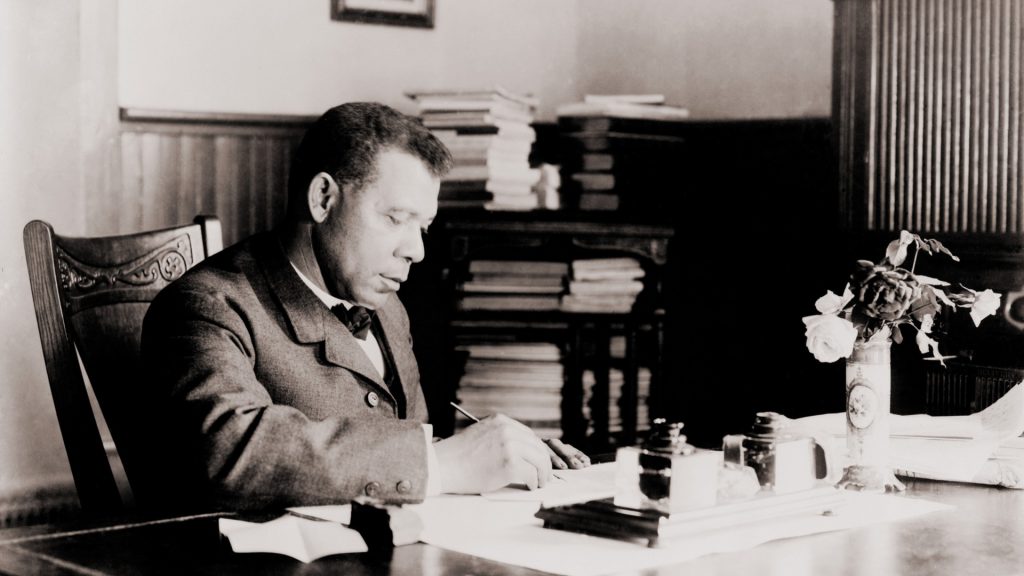
Published May 3, 2019
Democratic candidates, posturing for advantage and jostling one another leftward, are testing the idea of making reparations for slavery an active issue in the 2020 presidential campaign.
They should stop and think. The notion may be too volatile to indulge in a presidential-campaign year. By pressing the issue they may ensure the re-election of Donald Trump, and, along the way, make race relations in America a good deal worse. Compensation for slavery is an inviting idea in principle but would be a nightmare in practice. Reparations, in current conditions, would not repair anything.
Think of how the story might unfold. At first, the usual arguments would be explored. Pro-reparations people, both white and black, would quote Ta-Nehisi Coates, who writes beautifully and plumbs the ancient rages but may be a little too eloquent for his own good. Passionate principle would pour forth from the House of Indignation, and the arguments would be moving and persuasive, and many would say, yes, by all means—reparations!
Those who are against the idea would counter with practical points:
- Tens of millions of today’s nonblack Americans are descended from people who arrived in the country after slavery ended and therefore cannot be held responsible for its crimes or its legacy.
- More tens of millions are descended from people, in both North and South, who did not own slaves; or they are descended from white people who fought in the Civil War on the Union side, who thus paid “reparations” at the time—in blood. In fact, only a small percentage of the total American population were slave owners. Further, some blacks, and some Native Americans, owned slaves.
- The races have become so mixed in America that it would be impossible to sort out the descendants of slaves for compensation in just proportion to the degree of their African blood. America’s first black president would presumably not be entitled to reparations: Barack Obama’s mother was white and his father was a 20th-century Kenyan who came to America not on a slave ship but on a scholarship.
Mr. Obama is rich. So are a lot of other African-Americans. Should reparations be paid only to poor blacks? What of the millions of blacks who have flourished economically in America? Would Oprah Winfrey (estimated worth: $2.6 billion) be entitled to collect reparations? How does justice make these calculations?
An urgent argument against reparations is that instead of acting upon the American divisions as a positive and healing gesture, the issue would throw open a trapdoor out of which all manner of bigotries and bitterness, all the black bats of American history, would fly. It would push the country to angrier extremes on either side, stimulating fresh antagonisms. It would reconstitute America’s old racial conflict along new 21st-century lines.
The reparations debate would falsely impute guilt for centuries-old wrongs and would tempt those so accused into further invidious generalizations in an age of social media and hostile identity politics—an age that is too much given already to irresponsible generalizations.
Better to keep monsters, old and new, locked in the basement, and to let the conversation upstairs in the living room be as genteel as possible—even hypocritical. In matters of race hate, candor is overrated. Hypocrisy may be the moral way to go—until, as time passes, people become more civilized.
As a practical matter, reparations cannot be done and will not be done, though politicians will champion the idea to advance their ambitions. If actually attempted, reparations would raise expectations to an unreasonable pitch and then would become hopelessly tangled up in politics and bureaucracy. The possibilities for corruption would be endless. At first, reparations would look like the Big Rock Candy Mountain, and after that would become Jarndyce and Jarndyce, the interminable, devouring lawsuit in Dickens’s “Bleak House.” The drama would disappoint everyone and, in its wake, leave deeper disillusion.
Better that the reparations should come, as they have been coming, slowly, steadily, though with frustratingly uneven justice. Better that African-Americans should remind themselves of what Booker T. Washington—a brilliant black guerrilla leader in the totalitarian white South, grievously mistaken by his own people for an Uncle Tom—was trying to tell them more than a century ago: Living well is the best revenge.
Mr. Morrow is a senior fellow at the Ethics and Public Policy Center.








